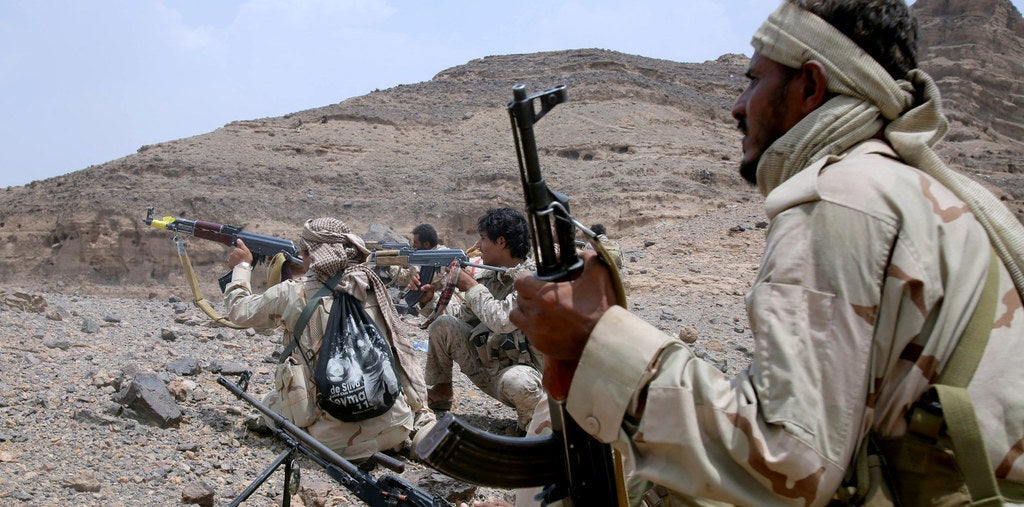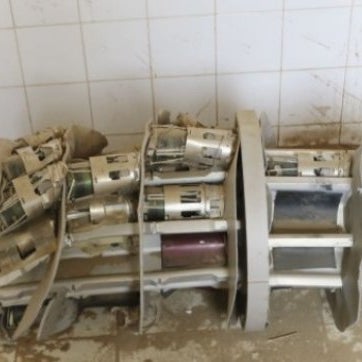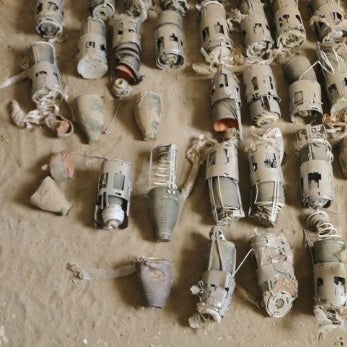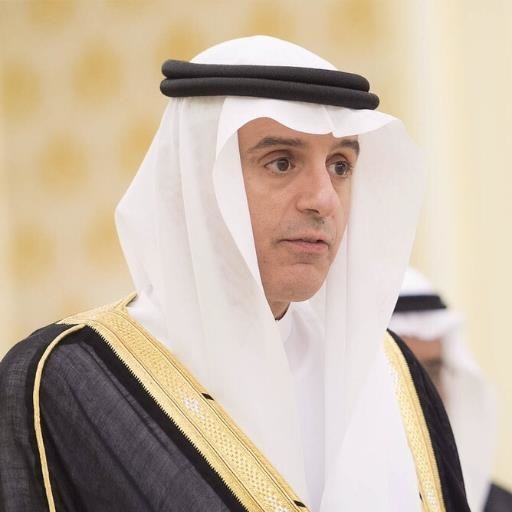
A parliamentary inquiry into British arms sales to Saudi Arabia has ended with MPs divided over whether exports should be allowed to continue amid claims the weapons are being in breach of international humanitarian law, a committee claiming leaks "undermined any possibility" of agreement, and an MP demanding private investigators be called in.
In a report published on Thursday, MPs on the international development committee and the business, innovation and skills committee said no new arms export licences should be issued until the allegations have been fully investigated.
But in a highly unusual move, MPs on the foreign affairs committee issued a separate version of the report that omitted the call for exports to be stopped and said instead that the high court should decide whether the sales are legal.
All three bodies are part of the Committees on Arms Export Control (CAEC), which has been conducting an inquiry into arms sales following criticism that the Saudi-led coalition's bombing campaign in Yemen was targeting civilians, in breach of international humanitarian law.
A fourth committee, the defence committee, is also a part of CAEC and did not endorse either report. In a statement Julian Lewis, the committee's chair, said: "A report was drafted without the customary process of circulating themes, conclusions and recommendations in advance. Instead, a draft report was produced which was then leaked. The leaking of that draft report and the subsequent media controversy about the Committees’ deliberations fatally undermined any possibility of the four Committees coming to an agreed position."
Both reports agreed that the possible use of British weapons in humanitarian abuses by the the Saudi-led coalition should be investigated by an international inquiry.
In the 12 months since the campaign began, the UK has licensed £3.3 billion worth of arms to Saudi Arabia, including aircraft, helicopters, drones, bombs, and missiles. The kingdom is BAE Systems' third-largest market, with sales including Typhoon and Tornado combat aircraft.
There have been concerns raised by campaigners, the cross-party MPs committee on international development, and the UN over the number of civilians killed by the bombing. Parliament has noted that the situation is deteriorating because of "atrocities" carried out by both sides in the conflict.
However, parliament has been unable to reach a conclusion and as a result CAEC, a so-called "super-committee", has divided. According to Newsnight, which had seen a draft copy of the report, the initial CAEC report was expected to say "the weight of evidence of violations of international humanitarian law (IHL) by the Saudi-led coalition in Yemen is now so great that it is very difficult to continue to support Saudi Arabia while maintaining the credibility of our arms licensing regime.”
However, the programme then revealed that there was turmoil on the committee, with two MPs – Crispin Blunt and John Spellar – lobbying to water down concerns over the legality of Saudi Arabia's actions.
This lead to Blunt calling in parliament for private investigators to look into the source of the leaks. He told Speaker John Bercow the leaks amounted "to a prima facie case of a deliberate campaign to influence a select committee reliant on in-confidence information provided by a member of this House or their staff." Blunt is the chair of the foreign affairs committee, which has produced a far less damning conclusion with regard to the legality of the sales.


A cluster bomb that Amnesty International claims to have found in Yemen
In a statement, the business committee said: "We heard during our inquiry that there have been clear violations of IHL. For example, the UN was told that military aircraft dropped two missiles resulting in the complete destruction of a two-story house during a wedding party. Forty-seven civilians, including 21 women and 15 children were killed, and 58 wounded.
"Under criterion 2c of the UK's arms export licensing criteria the Government should not grant a licence where there is a clear risk that the items might be used in the commission of a serious violation of IHL. Given the evidence we have heard and the volume of UK-manufactured arms exported to Saudi Arabia, it seems inevitable that any violations of international humanitarian and human rights law by the coalition have involved arms supplied from the UK. This constitutes a breach of our own export licensing criteria."
Chris White, who chaired the CAEC inquiry and is a member of the business committee, said: “The UK led the way in establishing international humanitarian law to govern the sale of arms. The conflict in Yemen has raised serious concerns that we are not showing equal determination in ensuring that these are respected.
“During this inquiry we have heard evidence from respected sources that weapons made in the UK have been used in contravention of international humanitarian law. The Government can no longer wait and see and must now take urgent action, halting the sale of arms to the Saudi-led coalition until we can be sure that there is no risk of violation."
Blunt, chair of the foreign affairs committee, said Saudi Arabia was a key strategic partner for Britain, making the relationship essential to the UK's security.
"However, the massive British interest in continued UK-Saudi relations cannot override our wider legal and moral obligations. It is crucial that the UK does everything in its power to ensure full compliance with international humanitarian law by the Saudi-led coalition.
"We have called for an independent UN-led investigation into allegations of violations of IHL to supplement the internal investigations of the Saudi-led coalition. We have made serious criticisms of the Government’s handling of the situation and the lack of transparency, which has materially damaged public trust in the arms export controls system. We have made substantive recommendations on the need to establish clarity on such issues as the alleged use of UK-manufactured cluster bombs in Yemen and the activities of UK personnel with the Saudi-led coalition.
"The appropriateness of the current framework of the law is a separate, yet pertinent, question, on which we did not take evidence. I believe that there is a clear need for a wider discussion on the suitability of the laws governing arms exports.
"The Government has serious work to do in answering this report."
Amnesty International UK’s arms control director, Oliver Sprague, backed the report calling for an immediate suspension of weapons sales.
“This ‘war of the reports’ shouldn’t become a distraction from the very simple fact that the UK is arming Saudi Arabia while the Saudi-led coalition is behind wave after wave of indiscriminate bombing in Yemen," he said.
“The Government shouldn’t be waiting for a court decision to force it to do the legally and morally right thing – which is to immediately suspend further UK arms sales to Saudi Arabia before even more civilians are killed.”

Earlier this month Saudi Arabia's foreign minister, Adel al-Jubair, met with MPs in London to discuss the situation in Yemen.
He also gave a talk at Chatham House, where according to a researcher who was present, he told those assembled that the war had been "forced" on Saudi Arabia, and accused Iran of assassinating diplomats and smuggling weapons into neighbouring countries.
Saudi Arabia gives billions of dollars' worth of aid to Yemen, and those who argue in favour of intervention say that the kingdom is doing what it must to prevent Iranian-backed instability in the region.
UK arms sales to Saudi Arabia are currently subject to a judicial review, following an application by Campaign Against Arms Trade (CAAT). A three-day review is understood to be scheduled for January next year.
Andrew Smith from CAAT said: "The Saudi regime has shown a contempt for human rights and clearly cannot be trusted to investigate itself for war crimes."
He went on: "It should not take a court case for the UK to stop arming one of the most repressive dictatorships in the world while it is creating a humanitarian catastrophe in Yemen, one of the poorest countries. The evidence that Saudi Arabia is violating international humanitarian law is overwhelming, and our legal action cannot be used as an excuse to carry on with business as usual.”
